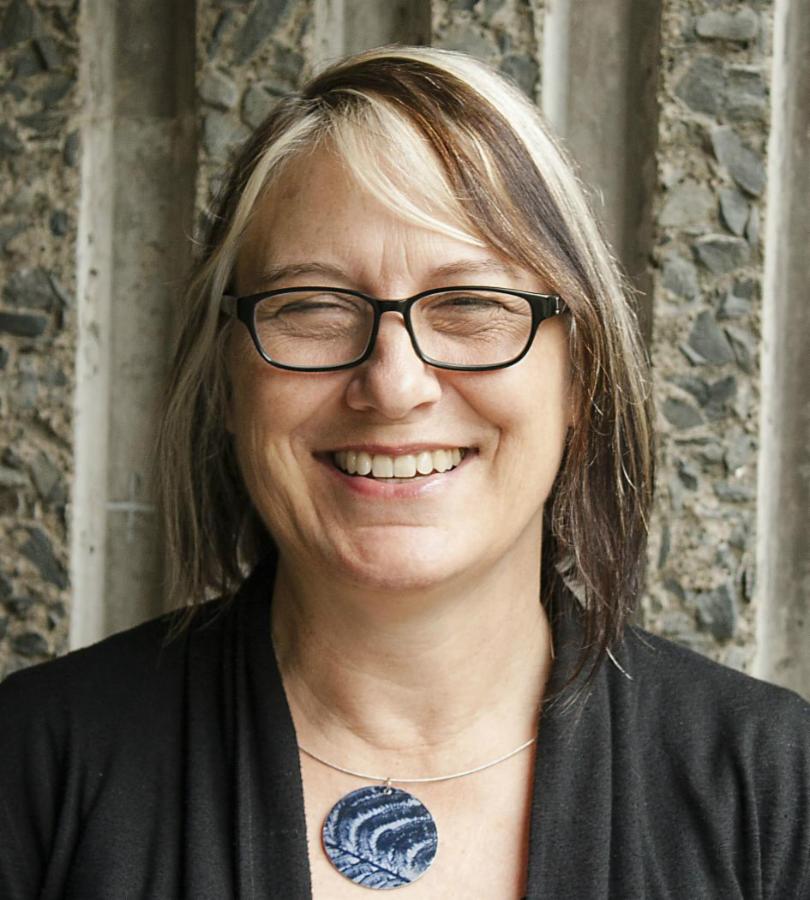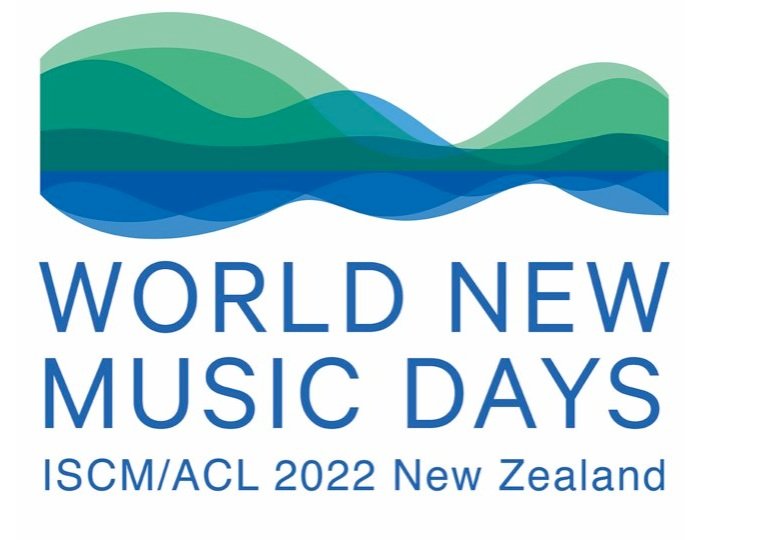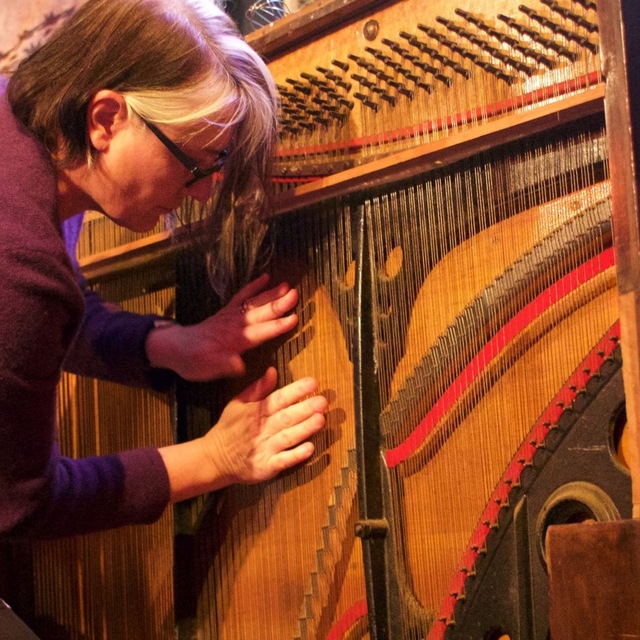
We caught up with composer Glenda Keam, current President of the International Society for Contemporary Music (ISCM), who is undertaking the mammoth task of organising two concurrent music festivals, The ISCM World New Music Days and the Asian Composers League Festival, in Auckland and Christchurch in late August.
What are ISCM and ACL, and why is it important that these festivals are coming to Aotearoa in 2022?
The ISCM is the International Society for Contemporary Music, a large international network of new music organizations that was created in August 1922 - so this is the centenary of the ISCM’s formation! The ACL is the Asian Composers League, a network of 17 new music organizations mostly from the Asia-Pacific region that each represent a country. The ISCM has only once had its annual festival in the southern hemisphere (Sydney, 2010) and the ACL has come to New Zealand three times, but only ever to Wellington (last in 2007).
The Composers Association of NZ (CANZ) has been the New Zealand member/section of both networks for a long time, and CANZ members have enjoyed many opportunities to travel to other host regions and hear their music played by performers based elsewhere. We have also had the opportunity to send delegates to the meetings attached to these major new music festivals, where there is a great deal of important exchange of knowledge, perspective, insight, and a major network through which composers and performers make long-lasting and often career-changing bonds. At the moment, Chris Gendall (former CANZ President) is on the Executive Committee of the ACL, and I have been on the Executive Committee of ISCM since 2014.
The ISCM-ACL2022 World New Music Days is our chance to bring the world here to hear our music and theirs performed by our performers, and for the first time in 15 years it is also bringing the two international networks together (in the Christchurch part of the festival). Although as you can imagine the COVID restrictions have impacted the number of in-person attendees, there will still be a significant group of composers and new music representatives in attendance, and there will also be many ‘attending’ and observing online.
Could you explain your role as President of ISCM?
The role of ISCM President is to lead the network’s Executive Committee, whose role is to ensure that (as far as possible) the desires and instructions of the General Assembly (i.e. the membership at large) are carried out, that the aims and goals of the network are supported and maintained, and the interests of the network are protected sustainably. The Presidency is a 3-year appointment, with the possibility of one renewal, and like so many roles in artistic leadership it is entirely voluntary. I was extremely proud to be voted President in 2019 at a meeting in the Arvo Pärt Center, when the Festival was in Estonia, and an additional special treat was to meet and talk with Arvo Pärt himself that day. I was the first New Zealander, and also (quite shockingly, really) the first woman to be elected to the position, after 97 years of male leadership.
The ISCM has been developing a new website which now shows the wonderful history of the ISCM festivals in great detail, and will soon also make available the information from our members’ Annual Reports that show what each of those organizations undertakes and achieves in a year - see https://iscm.org/

What are some highlights of the double festival that attendees can look forward to?
The whole Festival will be pretty full-on and amazing! Check out the full list of works included in the Events here: https://www.iscm2022nz.com/eventsinfo
Live performer events include choir concerts, trio and quartet concerts, orchestral concerts, taonga puoro, percussion and piano recitals, and many wacky electrical and electronic elements including a robotic glockenspiel, a quartet involving PS4 controllers, various electrical household objects, a ‘marimba lumina’, and some pieces involving the audience. There is also a stunning range of electroacoustic and video works with or without live performers, including an installation of such works at the Audio Foundation that will run for three weeks.
These events bring together our local music and the music of dozens of other countries in a massive celebration of the new.
We look forward to welcoming our guests to Auckland and opening the Festival with a Pōwhiri at the University’s School of Music, and welcoming our guests to Christchurch with a Mihi Whakatau at the Arts Centre, as well as farewelling them and formally closing the Festival at the end of final concert in Christchurch. Those traditional greeting and closure celebrations will powerfully and meaningfully support the importance of the Festival at large, with respectful acknowledgement of where we are, and strongly enhance our sense of coming together.
How has the New Zealand music community contributed to the festivals?
There has been an interesting response to the Festival from the NZ music community, which has been spread out over time because this festival was originally going to take place in 2020. Those who understand the scale of it, and appreciate the unprecedented benefits, are extremely supportive and excited. This is a once-in-a-century opportunity for the composing community and for all New Zealanders who are interested in new music to get a large dose of what’s happening here and around the globe. However the malaise caused by our unavoidable self-isolation of the past two years has in some ways messed with our ways of thinking about our relationship with the world at large, so the festival is coming to Aotearoa at a very weird point in world history. I am certain that everyone who engages with even just a little bit of this Festival will feel a renewed and clarified sense of our connection with the wider world of music-making.
Organising and hosting two festivals simultaneously is a huge undertaking. Can you give us an idea of the workload and what your day looks like? How big is your team? How is it funded?
The Festival is funded locally (the ISCM is simply a network of organizations, and does not contribute funds to the festivals). This Festival has been generously funded by a number of major supporters including CreativeNZ, APRA, Auckland City of Music, and the Lilburn Trust, and there is a great deal of assistance coming to us from various partners including SOUNZ, RadioNZ, and the Universities of Auckland and Canterbury. We also have some generous friends and donors who have donated funds and time. Because the festival was originally scheduled for 2020, and there were some significant cancellation penalties, we have faced some bracing challenges in the funding area, so we are very keen to have big audiences at all of the events! Also, if anyone wishes to donate towards this extraordinary one-off event we would be delighted to hear from them - CANZ is a charitable trust so the donations are eligible for tax credits.
This Festival is hosted by CANZ, and many members of CANZ are involved in it. Some were more involved in the earlier developmental stages, and some are much more embroiled in it now. We have a team of three co-ordinators (Catherine, Claudia and Hanna) and there’s also a lot of assistance from the performers themselves.
Every day is full for me, and every day is different. There are many decisions to make, many things to communicate, as well as more than a few favours to ask. I’ve spent a minimum of four hours every day on the festival for a very long time, and recently that figure has gone up. I do also have my paid work which is also very compelling, and a few doctoral students to supervise, which is always interesting too, so my days are juggling acts. Now that I’m no longer Head of Music at UC, and no longer travelling between Auckland and Christchurch on a weekly basis, my work-life has become almost completely home-based which helps a lot, and I can spend a lot more time with Jim (my husband), who is a freelance composer. The postponement of this festival by over two years has certainly tested my stamina, and I will be needing a bit of a rest when September comes.

The pandemic has greatly affected what the festivals will look like. What has had to change from your original 2020 conception?
The biggest difference between the 2020 programme and the 2022 programme is that we were not able to bring the two international ensembles to perform in the Festival because the government was not accepting and processing performer visa applications. At the moment, if festivals want to bring performers in as visitors (from visa waiver countries) they need to be registered festivals, and to have a track record in New Zealand. The ISCM festivals have been running for a hundred years but never before in New Zealand, so we 'fell through the cracks’ of festival eligibility, and lost the participation of both ELISION (Australia/Europe) and the Formalist Quartet (Los Angeles) other than one ‘film night’ of filmed performances by ELISION. The loss of those amazing ensembles from the lineup was very disappointing because they were going to present some very extraordinary music from the ISCM submissions and also their own countries, and yet … it’s still a massive festival full of exciting music!!
The festival will also have fewer international visitors sitting in the room, because visitor visa applications from non-visa-waiver countries are only opening now, and that does not allow enough time for people to make plans to fly here. There are also some who are facing significantly higher flight costs than in 2020, and can no longer afford to come. However they will be joining us online and/or watching events later, so we will certainly not be invisible to the rest of the world.
In general, the biggest difference we face, now that we have come to terms with the reductions described above, is the ongoing uncertainty. What happens if any of us get ill? What happens if our visitors get ill? Travel insurance typically excludes pandemic-related costs. We are encouraging everyone to wear masks and be very very careful, but we are all now living in a time when situations can change dramatically, and it would be naïve to pretend otherwise.
The repertoire was chosen two years ago and you’ve committed to keeping as many of these pieces as possible in 2022. Have any newer works been added since, and likewise, have any works had to be cancelled?
Some ISCM selected works were lost mostly because they were pinned to the ensembles that can no longer come, but all of the ACL works that might have fallen out have been able to be reassigned to some wonderful local players. We also lost some very interesting Australian and American music that was in the repertoires of those non-NZ ensembles. We have, however, added about another ten works by NZ composers, some of which have only just been written, and involved some additional local players, all of whom have particular expertise in contemporary music.
How many delegates are you expecting? Will those unable to come be able to participate remotely?
We have about 50 international visitors registered, a mix of delegates and composers, and including the whole ISCM Executive Committee. The General Assembly meetings of the ISCM will occur both in-person and on zoom, which is a ‘first’ for the ISCM - our last two years of GA meetings involved fully online meetings of about 80 attendees (at my end, this involved starting the meetings at midnight). This year the difficult timings will be experienced by those northern hemisphere delegates attending online, and we will be sitting in the room here with the in-person delegates also carrying proxies for some of the others. It’s certainly going to keep us on our toes, but we’ve planned very carefully which is all one can ever do…
The ACL General Assembly meetings proper will occur online outside of the Festival dates, because quite a few of those member countries do not enjoy a visa waiver arrangement with New Zealand. There will, however, be two meetings of “Country Reports” that will take place with a mix of in-person and online participation.
Will there be livestreams?
Many of the events will be livestreamed, and many will be viewable after the Festival. We’re still working out the precise logistics of all that…
Why did you choose to split the events between Auckland and Christchurch? What aspects of these two cities do you look forward to sharing with festival attendees?
The idea to host in the largest city on each island came about in about 2013, when I was starting to work at the University of Canterbury, and could see that it was important to contribute to the regeneration of the post-quake city. Back then, the idea of 2020 seemed a long way in the future, and I was certain there would be some wonderful new venues and excitingly reconsidered aspects to the city arising in time for the Festival. Our international visitors are certainly keen to learn the story of the quakes and how life in the city has evolved since that time. Also, the idea was to bring visitors into one of our large international airports, and send them home from the other one, with a sense of how richly diverse our landscapes are, and how big our country is (it’s still amazing how many people think NZ is a couple of dots on the bottom of the world, or even leave it off the world map completely). These days, with the climate crisis becoming increasingly urgent and also the complexities of travel during a pandemic, there are additional considerations that I simply didn’t imagine all those years ago when the AKL-CHC plan was hatched.
I am looking forward to seeing our attendees discover vibrant cities, extraordinary landscapes, expressions of bicultural Aotearoa, wonderful performers of brilliant and challenging new music, great food, excellent coffee, multi-national communities, artistic vision, and kindness.

As awareness of the climate implications of travel increases, have you noticed any hesitancy to travel great distances for environmental reasons? What does this mean for us economically and ethically down here in the South Pacific, far away from the busy hubs of the northern hemisphere?
This is a very important question, and extremely challenging for us all. Yes there is some hesitancy, mixed in with many other reactions. Some people think that cultural exchanges like these gatherings invaluable connectedness to our changing world, and put relatively little pressure on the environment, especially when compared to the ‘efficiencies’ of shipping goods around the world to such an extent that most of the clothing in our stores is made half a world away, and many of the foods in our supermarkets have come even further. Some people are in a hurry to travel again after feeling cooped up through the initial COVID peaks. Some people feel that while we can ’top up’ our communications through online platforms between in-person meetings, there is an increasing sense we are missing the other things that happen when we meet each other in 3D physical spaces. Some discussions work just fine online (zoom fatigue notwithstanding), but some more complex and perhaps ambitious discussions can only really achieve the best results through concentrated periods of time in the same room.
Some funding in Europe now is tied to a commitment to travel only by surface if one is attending an event - that sort of approach might be fine in a continent that’s all joined up with railways, but doesn’t work for the South Pacific and it doesn't support the extent of the global connectedness that the ISCM has been increasingly achieving over the past hundred years. You refer to the 'busy hubs’ of the northern hemisphere: the fact is most of the northern hemisphere moves around in aeroplanes still - a swift glance at real-time flight tracking maps confirm the extent of the problem. We have less choice 'down under' but that doesn't negate the fact that many people choose to fly even when they do have surface options.
I myself created an embarrassingly large environmental footprint in recent years of weekly commuting between Auckland and Christchurch, and many trips to Europe for conferences and for ISCM, often visiting close family members in North America on the way. I don't intend to put such a big footprint down in future, and I do plan to stay at home a lot more, but it's all very well for me - at my age and stage I can say that. It's different for other generations who haven't had the opportunities I did, and it's also different for the world's increasingly massive migrant populations who can no longer live in the place they call home.
I and the Executive Committee have developed a Discussion Paper that is part of the ISCM Agenda for this year's meetings, proposing the necessity for change. We are inviting discussion about what the festivals in their traditional format typically achieve, what it would mean for the network to have non-annual festivals in future, what would be gained and lost if there is a regional hub structure for festivals rather than all-together, and also to reflect on what we have been missing after two consecutive years of no festival and just our virtual series of pre-recorded performances. There is so much lasting benefit from these gatherings, evident in the ways participants' careers and creative trajectories have been influenced by the meetings, that it will be a serious and complex challenge for us to contemplate this 'need for change', but we also know there is no time to be lost in adjusting how we proceed.
Visit https://www.iscm2022nz.com/ for full details about the festivals.
